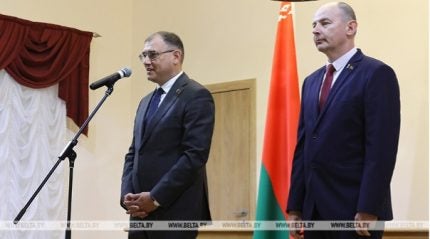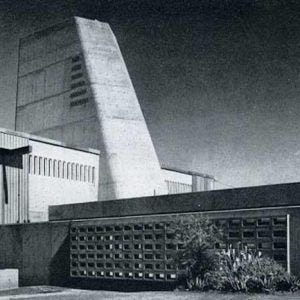
Belarus President Alexander Lukashenko has appointed Alexei Kushnarenko as the new energy minister replacing Victor Karankevich, who has been appointed Deputy Prime Minister. Kushnarenko was previously CEO of gas and fuel distribution corporation Beltopgaz.
Belarus President Alexander Lukashenko, announcing the appointment of Kushnarenko, noted that there is “plenty of work … particularly … regarding our plans whether or not to build a new nuclear power plant”.
Referring to the existing Belarus NPP, Kushnarenko stressed the need to “meet the growing demand for electricity in both the real sector of the economy and for the population in terms of heating and hot water supply” He noted that electricity consumption continues to grow.
The Belarus NPP at Ostravets in Grodno comprises two VVER-1200 power units based on the NPP-2006 project. The 2011 intergovernmental agreement on the construction of the plant provides for cooperation in the design, construction and turnkey commissioning of the units. Russia supported the project with a $10bn to cover 90% of the overall cost. The plant was issued a permit for pilot industrial operation of unit 1 in December 2020. It was connected to the grid in March 2021 and began commercial operation the following month. It was the first VVER-1200 unit to begin operation outside of Russia. Unit 2 was commissioned in November 2023. The plant’s two units (total capacity 2,400 MWe) provide about 40% of the electricity needs of Belarus.
“The main thing we will focus on is the progressive development of the fuel and energy complex of Belarus,” said Kushnarenko. “For this, the energy system has everything it needs: support from the head of state, government, executive and legislative bodies. A powerful material and technical base has been created, including innovative devices and equipment and software systems.”
Speaking to journalists after his appointment, Kushnarenko emphasised that he would be actively involved in studies for the construction of a second NPP. “As for the Belarusian nuclear power plant, a group of experts is already working on this. I will actively engage in this work and, of course, form my own opinion, which will be submitted to the relevant bodies, and the head of state, considering the importance and significance of this issue.”
In December 2023, former Energy Kinister Karankevich had said experts were looking into the costs and the requirements for future electricity capacity growth with a target of achieving 44 TWh of electricity in 2025. “By 2030 we have to reach 47 TWh. … Looking to 2040 instead of 2030 or 2035 we need to decide about a second nuclear power plant or the third unit [at Ostrovets].”
In terms of the overall energy situation, Kushnarenko noted that energy was the lifeblood of the economy and the most important element of the livelihoods of the population. “What is a house without light, without energy supply. The system has been developed over decades and Belarus is self-sufficient in energy. But there is no limit to perfection. And, of course, all efforts will be aimed at ensuring a trouble-free, uninterrupted, affordable and high-quality energy supply.”






